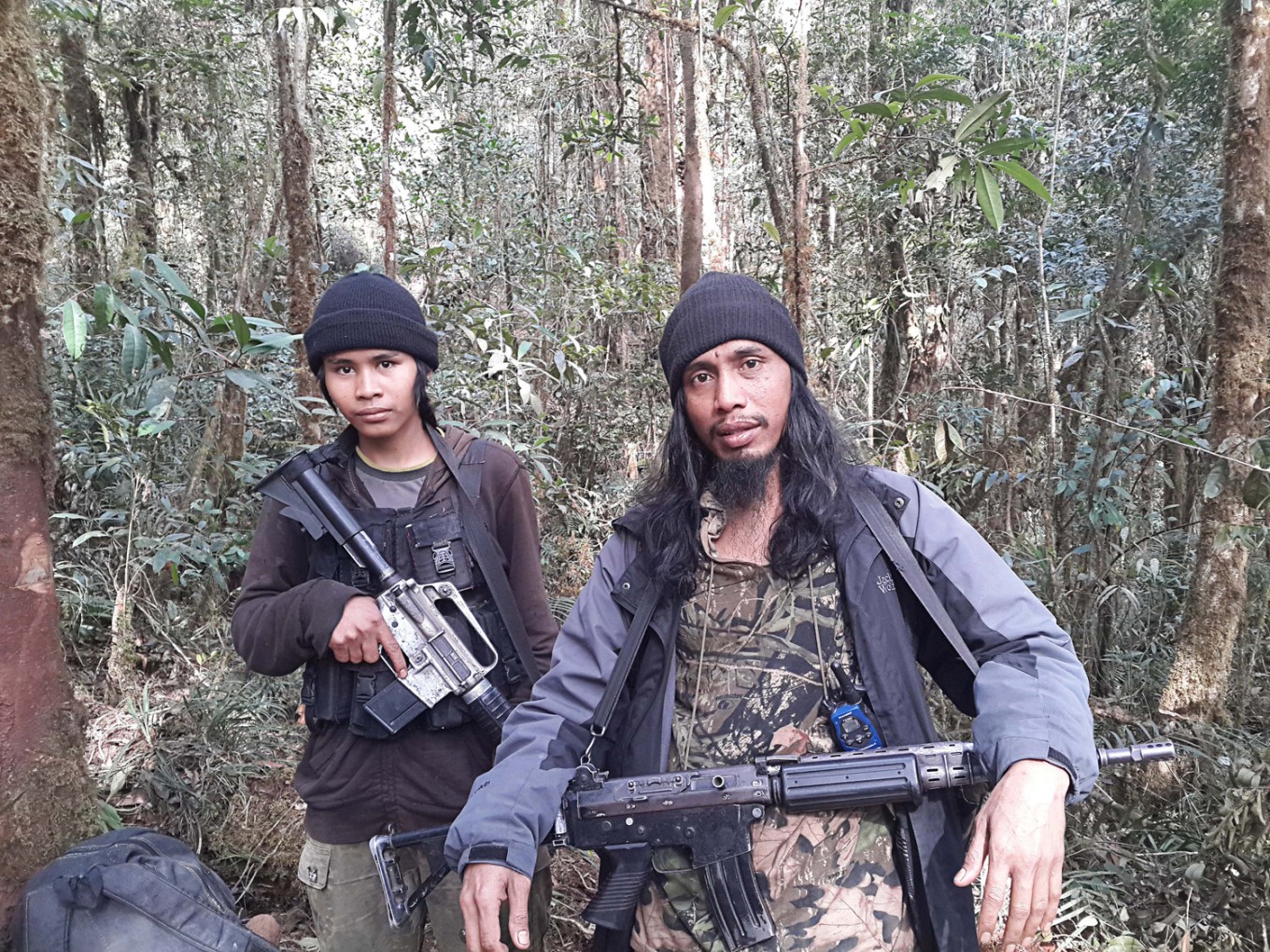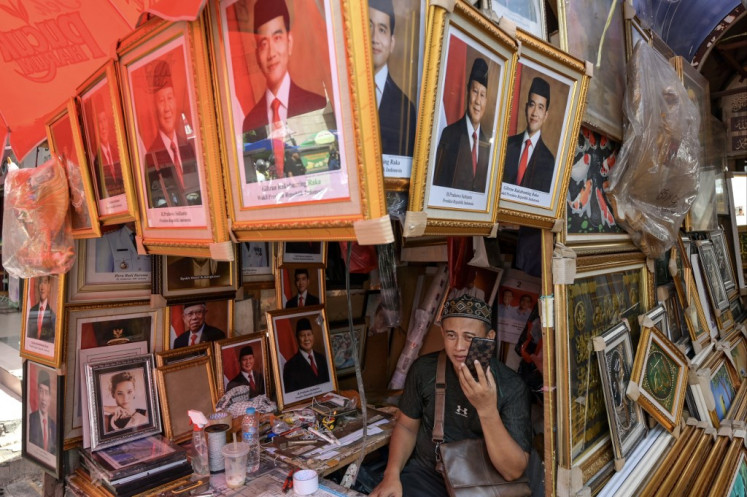The soft but effective approach to terrorism
Change Size
 Surrender – This picture shows Salman aka Opik (left) who is on duty to guard East Indonesia Mujahidin (MIT) leader Santoso aka Abu Wardah (right) in a forest in Poso, Central Sulawesi. Salman reportedly surrendered to the Operation Tinombala Taskforce on Sunday afternoon. (Courtesy of the Operation Tinombala Task Force/-)
Surrender – This picture shows Salman aka Opik (left) who is on duty to guard East Indonesia Mujahidin (MIT) leader Santoso aka Abu Wardah (right) in a forest in Poso, Central Sulawesi. Salman reportedly surrendered to the Operation Tinombala Taskforce on Sunday afternoon. (Courtesy of the Operation Tinombala Task Force/-)
P
resident Joko “Jokowi” Widodo’s appointment of Com. Gen. Suhardi Alius as the new chief of the National Counterterrorism Agency (BNPT) comes at a very crucial moment. France recently suffered a terrorist attack in Nice, the second in a short span of time. Closer to Indonesia, Malaysia has being issuing warnings on the latent potential for terrorist attacks in the country.
Indonesia has reeled from a string of extremist attacks unleashed since September 2000 in the parking garage of the Indonesia Stock Exchange (IDX) building to the attack last January at a Starbucks store, again in Jakarta’s business district.
Bali has fallen victim twice; and Aceh, Palu and Palopo in Central Sulawesi have not been spared.
Given increasing fears of terrorist attacks in the region, it makes sense for Jokowi to take this problem seriously within his own borders.
Suhardi comes highly recommend by National Police chief Gen. Tito Karnavian.
Suhardi has been credited by Tito for having “excellent relations with Islamic mass organizations, activists, civil society, the Indonesian Military [TNI], the National Police and other institutions.”
In itself this is a strong statement attesting to Suhardi’s suitability for the job. But quite clearly, Tito expects counterterrorism to be a broad-based effort targeted at a wide range of interested groups.
The fundamental point that Tito is making is that there is a network that is involved, which has nodes of activity within the country.
External support can extend to Syria, but the regional environment is equally liable.
Suhardi is absolutely right to state that the BNPT will focus on soft approaches to fight terrorism. In the immediate term, it will be necessary to kill others like Santoso, the head of the East Indonesia Mujahidin (MIT) terrorist group, and his follower Muchtar.
This is exactly what happened on July 18, but a deeper strategy is necessary.
Counterterrorism in Indonesia will have to be inclusive, bringing in the NGOs, Islamic groups, the wider public and of course all the domestic security agencies.
A particularly demanding aspect will be to deradicalize those who might want to turn to a radical interpretation of Islam.
This requires touching base with those who have a hand in creating and presenting credible and moderate interpretations of Islam, to promote a brand of Islam that is appealing to Muslims, one that abhors violence and is tolerant to liberal values.
The preachers of violence will have to be countered by the preachers of peace and tolerance. Much of the work will lie in this arena; and this is what will be sustainable in the long-term.
Alongside the obvious attempts at curbing domestically generated tendencies for terrorism, effort also has be to directed at monitoring
the flow of funds from external sources intended to support these activities in Indonesia. This requires a concerted attempt from agencies such as the central bank and related organizations.
Yet another, rather neglected, strategy is to focus on the regional aspect of the problem. Malaysia, Thailand, Myanmar and the Philippines have concerns of their own.
It would be in ASEAN’s interest if deeper regional efforts were made. It would be helpful to have appropriate regionally based institutions to combat the problem.
Prime Minister Narendra Modi of India in his recent meeting with Malaysia’s deputy prime minister, Ahmad Zahid Hamidi, urged Malaysia to take the lead in the battle against terrorism.
Malaysia has modeled itself as a country that promotes moderation, although it has a majority Muslim population and is also multi-ethnic and multi-religious. The US subscribes to this perception and now it appears India takes the same view.
Indonesia, too, has long upheld a policy of universalism, moderation and non-discrimination. These values are no better exhibited than in the state philosophy of Pancasila.
These values have to be reignited in the hearts of Indonesians in the fight against terror, and Indonesia could well be poised to be the global leader in this battle.
But the tough question lies in the details: How Suhardi will go about it? How he will mobilize the moderate Muslims in Indonesia? How he will address the regional angle?
____________________________________________
The writer is a senior research fellow at the Malaysian Institute of Economic Research, Kuala Lumpur.









